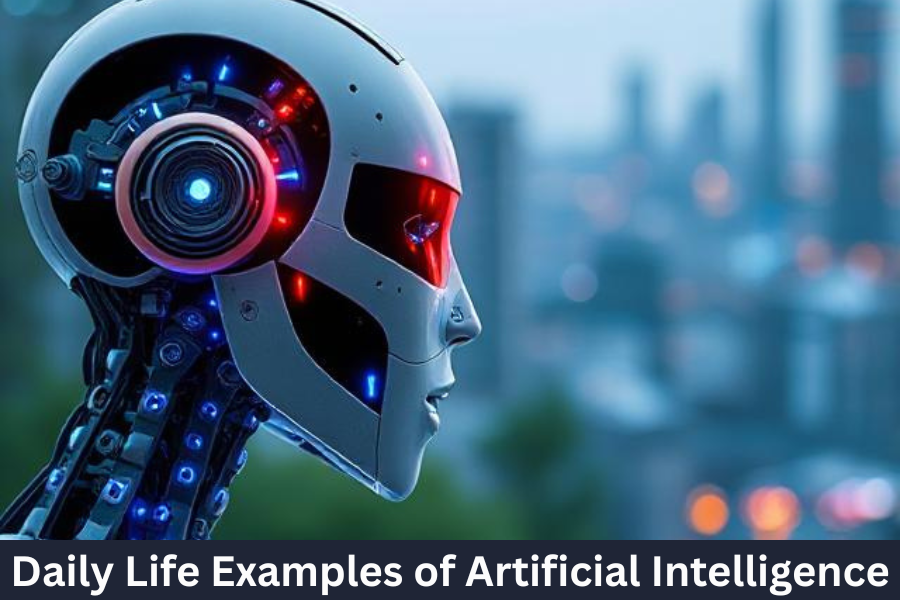Artificial Intelligence (AI) is not merely a tech buzzword; it’s been silently seeping into our routines. From face recognition unlocking for phones to Netflix recommending what to watch, it’s truly everywhere.
AI in Smart Home Technology
Virtual Assistants (Alexa, Google Assistant, Siri)
These voice-controlled helpers play songs, reminder-setting, and turning on lights or appliances at the simple voice command of a human.
Smart Thermostats and Lighting
AI understands your daily activities and optimizes temperature and lighting settings to save on energy bills.
Home Security Systems
AI-equipped cameras can detect motion, identify faces, and send alerts instantly to your phone.
Smartphones and Personal Devices
Predictive Text and Autocorrect
Your phone predicts the next word you are going to type or autocorrects typos using machine learning.
Voice Recognition
From unlocking phones to dictating messages, AI-driven voice recognition makes tasks hands-free.
AI Powered Cameras
Phones adjust lighting, detect scenes, and enhance photos automatically with AI.
Online Shopping and Recommendations
Personalized Product Suggestions
E-commerce portals keep tabs on your browsing habits to suggest products that would have the best chance of selling.
Algorithmic Dynamic Pricing
AI alters prices in real-time in accordance with demand and the intensity of competition.
Social Media Websites
Content Recommendations and Feeds
AI weighs all of the factors that go into what posts or videos should show up first, Lizly keeping your feed relevant.
AI for Photo Tagging and Filters
Automatic face tagging and AR filters use sophisticated AI algorithms.
Spam and Fake Account Detection
All before you will see it, Artificial Intelligence marks out bots and removes harmful content.
Transportation and Navigation
Keeping a good match between drivers and riders, ride-sharing apps Uber, mySteadyState, and Lyft use AI so that drivers and riders get matched efficiently.
GPS and Real-Time Traffic Updates
AI considers traffic patterns for the fastest routes.
Autonomous Vehicles
From lane detection to emergency braking, self-driving cars use AI for wearing it all.
Healthcare Applications
Virtual Health Assistants
These chatbots help schedule appointments and provide basic health advice.
AI in Diagnostics and Imaging
AI can identify diseases faster than human doctors in some cases, from X-rays to MRIs.
Wearable Health Trackers
Smartwatches use AI to keep an eye on heart rates, sleep patterns, and fitness levels.
Finance and Banking
Fraud Detection Systems
Banks use AI to detect suspicious activity and fraud.
Robo-Advisors for Investments
These platforms construct tailored investment plans using algorithms.
Chatbots for Customer Service
AI-powered bots offer answers 24 hours a day and 7 days a week, saving time and resources.
Entertainment and Media
Streaming Recommendations (Netflix, Spotify)
AI checks what you watch or listen to and recommends similar content.
AI Opponents for Video Games
AI-driven game characters offer players with a more intricate and believable gameplay experience.
Education and E-Learning
Intelligent Tutoring Systems
AI tools modify lessons in accordance with the learning speed of a student.
Language Translation Tools
Apps similar to Google Translate utilize AI to give almost instant translations.
Workplace and Productivity
Scheduling Tools Powered by AI
Smart calendars propose best times for meetings based on everyone’s availability.
Automated Email Sorting
AI catches spam and marks emails for you.
Security and Fraud Prevention
Facial Recognition
The airports, smartphones, and the offices where this is used are being secured by this.
Cybersecurity Threat Detection
AI oversees the network behavior in trying to find any suspicious movement.
Environmental and Smart Cities
Energy Management Systems
AI attempts to coordinate energy usage on the smart grid to reduce waste.
Smart Traffic Control
AI-controlled traffic lights adjust themselves to prevailing traffic conditions to relieve congestion.
Future Outlook of AI in Daily Life
We should see AI becoming much more personal-low-profile health monitoring, uniquely customized education, and autonomous transportation will be daily norms.
Conclusion
From your phone to your thermostat, conveniences we now take for granted are quietly powered by AI. It’s not just the future–it’s your present.
FAQs
1. What is the simplest example of AI in daily life?
Predictive text on smartphones is one of the most common and simple examples.
2. How does AI improve online shopping?
By analyzing browsing habits, AI suggests products and adjusts prices in real-time.
3. Is AI safe to use at home?
Yes, if devices are being kept updated, and security options on these devices are turned on.
4. Will AI replace human jobs completely?
AI is going to replace performing tasks, but humans are still going to be needed for creativity and much more for decision-making.
5. How is AI shaping the future of healthcare?
AI helps with faster diagnostics, remote monitoring, and personalized treatment plans.




